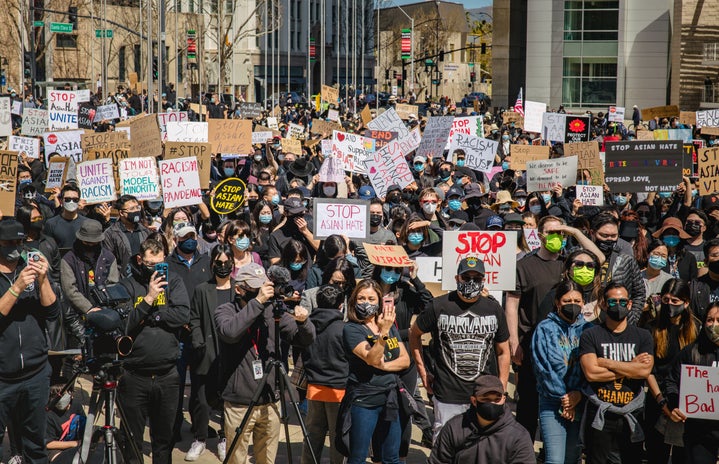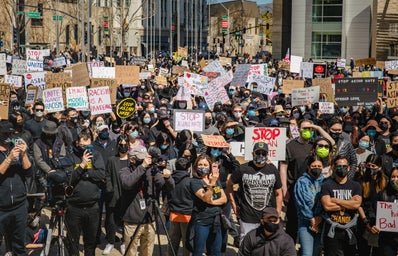On Tuesday March 16, within a span of 45 minutes, three spas in the Atlanta area were attacked by a single gunman, resulting in the death of eight people—six of which were Asian-American women.
There’s no question: this horrific incident was undoubtedly a hate crime.
And yet, speculations continue about the motives, as if they aren’t clear. Some officials have suggested the possibility that these murders were the result of a loss of control stemming from shooter Robert Aaron’s “sexual addictions.”
Others, like Cherokee County Sheriff Frank Reynolds, have chalked it up to a young man having a “very bad day,” rather than something along the lines of a racially-motivated femicide.
Knowing what we do about the victims, why do police refuse to call this attack like it is?
How many “bad days” will come before we start taking Anti-Asian hate crimes seriously?
According to the US based non-profit Stop AAPI Hate, between March 19, 2020 and February 28, 2021, there have been 3,795 reported incidents of Anti-Asian hate crimes. Of that number, women have reported hate incidents 2.3 times more than men.
Canada is no stranger to the rise of Anti-Asian hate crimes, with different non-profits reporting 947 hate crimes (and counting) against the Asian community since the start of the COVID-19 pandemic.
These incidents all occur right before our eyes, even though we may not see it. News reports of hate crimes in our cities and communities can seem like a far-away reality, disconnected from those of us who have not been directly affected. But the truth is, these attacks have existed since long before the media started covering them in the pandemic, hidden from the gaze of the public.
Before and throughout quarantines and lockdowns, xenophobic acts have been reported in Canada, Asian woman have been fetishized, by being labeled as “submissive and exotic beauties,” the virus has been referred to as the “China virus” and “Kung flu.” If the shooting in Atlanta tells us anything, it’s that microaggressions and racist acts have been normalized and reinforced time and time again by figures in power, our political institutions and even by peers in our own communities.
The Harmful Perception of Model Minorities
The concept of model minorities sells the idea that all races stand an equal chance to move up in status or class, and those that haven’t risen to a better status have been a failure. This perspective is harmful because it completely erases the context that newcomers to Western countries exist in; it ignores the fact that we live in a society built on white supremacy and on the exploitation of the minority groups. Asian people provide a textbook example for this, and have long been portrayed as a model minority, going above and beyond difficult situations despite being at a disadvantage. Rather than focusing on the system of oppression and hateful ideologies which hurt Asian communities daily, this model minority view focuses on the ones who succeeded within that system, leaving victims of hate crimes and racism to fend for themselves.
The normalization of hate crimes towards the Asian community has led to increased microaggressions, to the desensitization towards violent news and to the erasure of their experience as people of color.
Widespread reporting and media coverage of the Atlanta shooting won’t be enough to change that – not without tangible, community-led action, too.
If you know someone who is part of the Asian community, take the time to check on them. There are many ways we can help, starting with engaging in anti-racism education. Here are some key resources to add to your reading list, as well as some fundraising projects and workshops:
Stop AAPI Hate – Recommendations for Action
Hollaback! Guide to Bystander Intervention
Hollaback! Bystander Intervention Online Training
Asian Americans Advancing Justice – Bystander Intervention Online Training
5-hour Film Series Exploring Asian-American History
“We Are Not a Stereotype” Video Series
Project 1907 Canadian-Based Learning Tools and Helping Resources
Covid Racism Canadian-Based Learning Tools and Helping Resources
BIPOC Therapist Directory (Canada)
South Asian Therapists Directory (Canada)
Anti-Asian Violence Resources Card for Social Media



